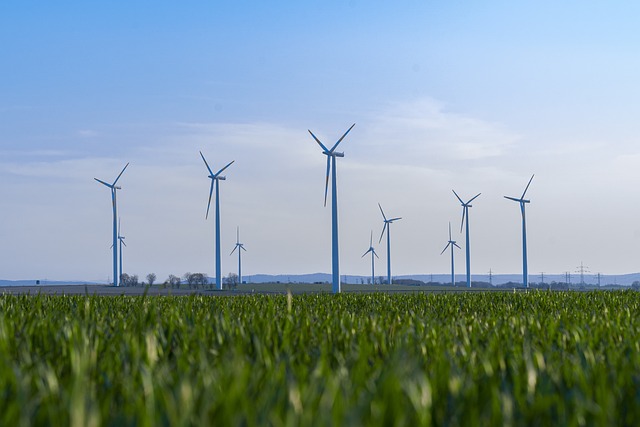Der Übergang zu erneuerbaren Energien ist zu einer globalen Priorität geworden, und Deutschland ist führend in dieser Entwicklung. Eine wesentliche Triebkraft hinter dem Erfolg der deutschen Energiewende ist das Erneuerbare-Energien-Gesetz (EEG), das als wegweisendes Instrument zur Förderung der nachhaltigen Energieerzeugung dient. Das EEG hat nicht nur den Ausbau von Solar- und Windenergie beschleunigt, sondern auch einen bedeutenden Einfluss auf die Wirtschaft, die Umwelt und das tägliche Leben der Menschen in Deutschland gehabt. In diesem Artikel nehmen wir das EEG genauer unter die Lupe und beleuchten seine Hintergründe, Ziele und Auswirkungen auf die deutsche Energiewende. Tauchen Sie mit uns ein in die Welt der erneuerbaren Energien und entdecken Sie, wie das EEG eine Schlüsselrolle bei der Umgestaltung der deutschen Energiebranche spielt.
Woher kommt das Geld für die Einspeisevergütung?
Die Einspeisevergütung im Rahmen des EEG wird über eine sogenannte „Umlagefinanzierung“ finanziert. Das bedeutet, dass die Kosten auf die Verbraucher umgelegt werden, um den Ausbau erneuerbarer Energien zu fördern.
Die EEG-Umlage wird von den Netzbetreibern erhoben und basiert auf dem Unterschied zwischen den festgelegten Vergütungssätzen für erneuerbaren Strom und den aktuellen Marktpreisen. Wenn die Vergütungssätze höher sind als die Marktpreise, entsteht eine Differenz, die über die EEG-Umlage finanziert wird.
Die Energieversorgungsunternehmen kaufen den Strom von den Betreibern erneuerbarer Energieanlagen zu den festgelegten Vergütungssätzen ab und verkaufen ihn dann auf dem Markt. Die Differenz zwischen den Vergütungssätzen und den Erlösen aus dem Verkauf wird über die EEG-Umlage ausgeglichen.
Die EEG-Umlage wird auf die Stromrechnungen der Verbraucher aufgeschlagen. Dabei trägt jeder Stromverbraucher entsprechend seines Verbrauchsanteils zur Finanzierung der Einspeisevergütung bei. Die Höhe der EEG-Umlage wird jährlich von der Bundesnetzagentur festgelegt und kann von Jahr zu Jahr variieren.
Diese Umlagefinanzierung stellt sicher, dass die Betreiber erneuerbarer Energieanlagen eine garantierte Vergütung erhalten und der Ausbau erneuerbarer Energien vorangetrieben wird, während die Kosten auf eine breite Basis verteilt werden.
Die Enstehung des Erneuerbaren Energie Gesetzes
Das Erneuerbare-Energien-Gesetz (EEG) wurde erstmals im Jahr 2000 in Deutschland verabschiedet und hat seitdem einen maßgeblichen Einfluss auf die Förderung erneuerbarer Energien im Land gehabt. Das Gesetz wurde eingeführt, um den Ausbau von erneuerbaren Energien, wie Windkraft, Solarenergie, Biomasse und Wasserkraft, zu beschleunigen und den Übergang zu einer nachhaltigen Energieversorgung zu unterstützen.
Das EEG basiert auf dem sogenannten Einspeisevergütungsmechanismus, bei dem Erzeuger erneuerbarer Energien für den in das Stromnetz eingespeisten Strom eine festgelegte Vergütung erhalten. Diese Vergütung ist in der Regel höher als der Marktpreis für konventionell erzeugten Strom und bietet den Erzeugern eine finanzielle Anreizstruktur, um in erneuerbare Energien zu investieren.
Im Laufe der Jahre wurde das EEG mehrmals überarbeitet und angepasst, um auf veränderte Marktbedingungen und technologische Fortschritte zu reagieren. Die Novellierungen des EEG haben unter anderem die Einspeisevergütungssätze angepasst, den Ausbau von bestimmten Technologien priorisiert und die Marktintegration erneuerbarer Energien vorangetrieben.
Das EEG hat in Deutschland einen bedeutenden Beitrag zur Transformation des Energiesystems geleistet. Es hat dazu beigetragen, dass erneuerbare Energien einen immer größeren Anteil an der Stromerzeugung des Landes ausmachen und einen wichtigen Beitrag zur Reduzierung von Treibhausgasemissionen leisten.
Fazit:
Das Erneuerbare-Energien-Gesetz (EEG) ist ein Eckpfeiler der deutschen Energiewende und hat einen maßgeblichen Beitrag zur Förderung erneuerbarer Energien geleistet. Durch garantierte Einspeisevergütungen und Priorisierung erneuerbarer Energiequellen hat das EEG Investitionen in Photovoltaik, Windkraft und andere nachhaltige Technologien ermöglicht. Auf dem PV-Ratgeber der Firma Solar Direktinvest, können Sie sich über das EEG und einem Investment in Photovoltaik bestens informieren.
